After homeschooling kids with dyslexia for over 20+ years, I have seen just about every reading curriculum on the planet! And before I learned about the kinds of reading programs that really work, I tried just about everything on the market too.
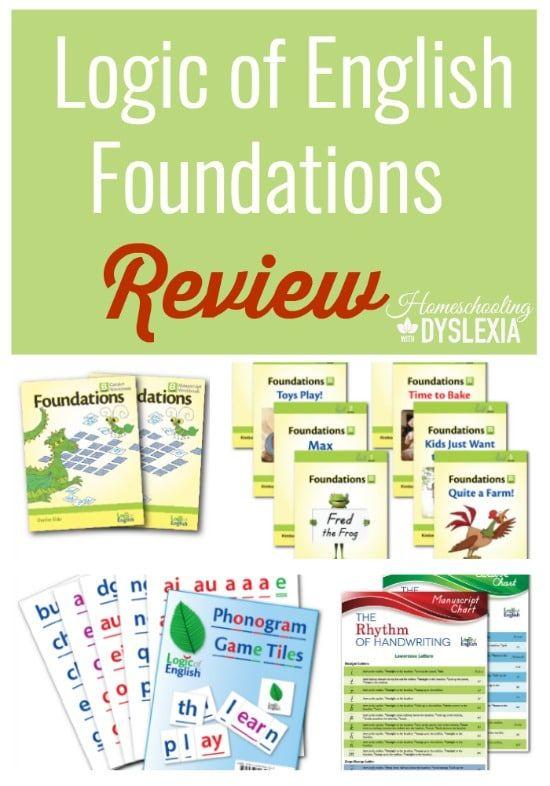
This post contains affiliate links. I earn a small commission on purchases made through these links. You are not charged more and all purchases are private. As you know, I never promote any program or service that I have not personally used and loved. See our privacy policy for more information.
Today, as a certified Orton-Gillingham (OG) dyslexia tutor, I only recommend OG-based reading programs to parents teaching their kids with dyslexia.
For more information on why I only recommend Orton-Gillingham based reading programs, read this.
One program that I can get behind 110% is Logic of English (LOE). The creators of LOE have a mission to improve literacy around the world and their products are more than capable of doing that.
This post is a review of the Logic of English Foundations program for kids ages 4-7. A review the LOE Essentials program for kids ages 8+ is coming soon! Scroll to the end of this post for a video of all of the components of the program.
What is Logic of English Foundations?
LOE Foundations is a complete multi-sensory Phonics, Reading, Handwriting, and Spelling program geared for kids ages 4-7.
There are 4 levels of Foundations:
- Level A covers basic phonemic awareness to short vowel words.
- Level B covers short sentences, long vowels, schwa sounds, and multi-letter phonograms.
- Level C covers paragraphs, new spelling rules and phonograms, and multi-syllable words.
- Level D master basic phonograms, deepen spelling skills, and read children’s books!
If you want help to decide which level is best for your child, see the Help Me Choose page.
A typical schedule is A & B in kindergarten and C and D in 1st grade. Some choose to start A in pre-K, or to spread A-C over kindergarten and first grade and teach D in second grade. These schedules will work fine as well!
Why We Love Logic of English for Teaching Reading to Kids With Dyslexia
LOE is super easy to use!
All lessons are completely scripted meaning, they tell you exactly what to say, so there is little prep time for teacher.
There are really useful teaching tips scattered through the entire Teachers Manual.
The variety of hands on activities and games is amazing and gives you an arsenal of ideas for review and practice that you can use any time.
The Teacher’s Manual contains a supply list for every lesson so I can be prepared before we start.
All pages in both the Teacher’s Manual and the Student workbook are in full color.
The entire Logic of English curriculum is intelligently laid out and taught in an explicit, systematic way that makes sense of learning to read.
A Typical Lesson in Logic of English
The main components of the program are the Teacher’s Manual and a consumable Student workbook. Since LOE is also a handwriting curriculum, you will need to choose a Student Workbook that is either manuscript or cursive.
Phonemic Awareness In Logic of English
In Foundations levels A & B phonemic awareness is taught in every lesson. In levels C & D phonemic awareness is taught less frequently but is always practiced during the spelling section of each lesson.
Fluency in Logic of English
Fluency is practiced using a variety of engaging games. Kids will get a ton of practice with high frequency words which are taught very systematically so they are decodable.
Vocabulary and Spelling in Logic of English
Spelling begins after lesson 21 in Foundations level A. A word is dictated and used in a sentence. The student repeats the word and, using phonemic awareness skills, breaks the word into its phonemes before writing each letter or group of letters. This instruction includes vocabulary tips and ideas which are practiced through games and other engaging activities.
Level D uses real books (not readers) and includes vocabulary related to the story.
Comprehension in Logic of English
Comprehension is taught systematically with the readers that are included with every level. Again this is taught through games and lots of practice. See the comprehension activity below for example of the colorful, hands on nature of Logic of English.
Assessments
After every 5th lesson there is an assessment. These are exactly like the activities the kids have already been doing in their workbooks and give teachers an idea of where they may need more practice. Every assessment is followed by a lost of Practice Ideas for the any review needed on the concepts covered.
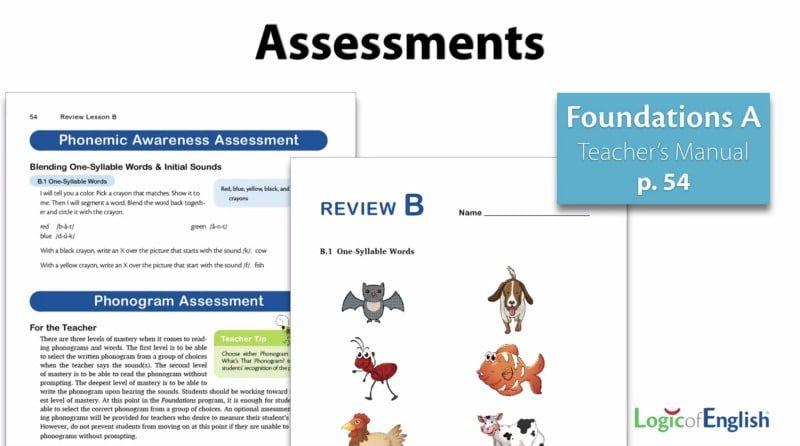
Handwriting inlcuded
Handwriting is taught in every lesson. Level A teaches lower case letters. Level B teaches upper case letters. Levels C and D use copywork and introduce basic composition. It is recommended to begin handwriting instruction with cursive. To learn why this is so, read this.
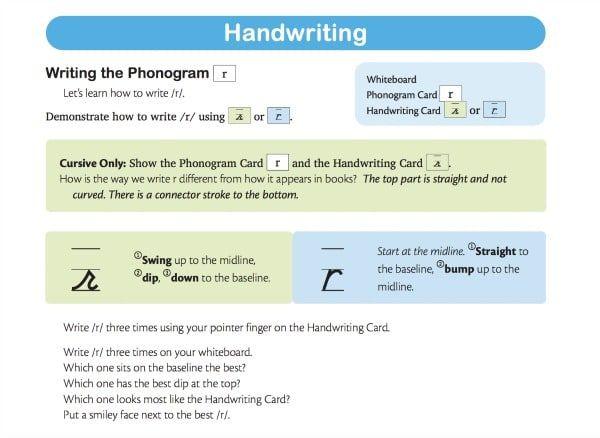
Materials Needed
The supplemental materials provided by Logic of English are high quality and affordable. The easiest and least expensive way to purchase the program is by buying the preassembled sets. Levels A and B (pictured to the left) includes everything you need to teach both levels. Later, when you need levels C and D, there is a preassembled bundle that includes the remaining supplemental materials as well as the Teacher’s Manuals and Student Workbooks.
A Video Overview of Logic of English Foundations
There are some awesome supplemental materials that go along with the LOE program. Get a close up look in this overview video.
All in all, the Logic of English Foundations program is an excellent, effective, and affordable reading program that works very well with struggling readers.
More posts of interest:
A Comparison of the Top Four OG Reading Programs for Parents

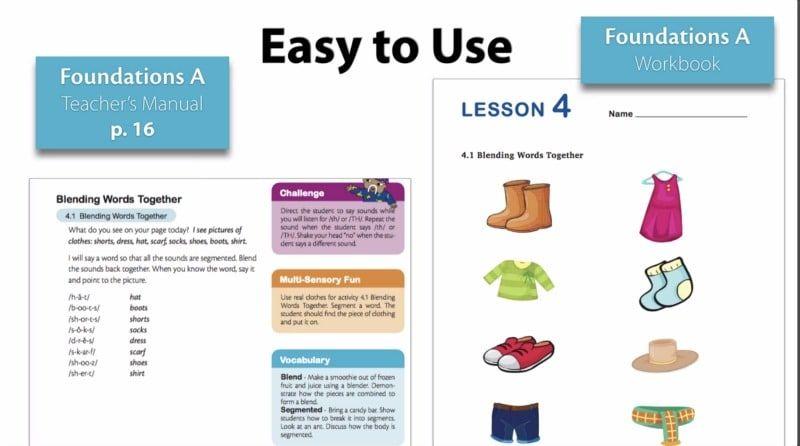
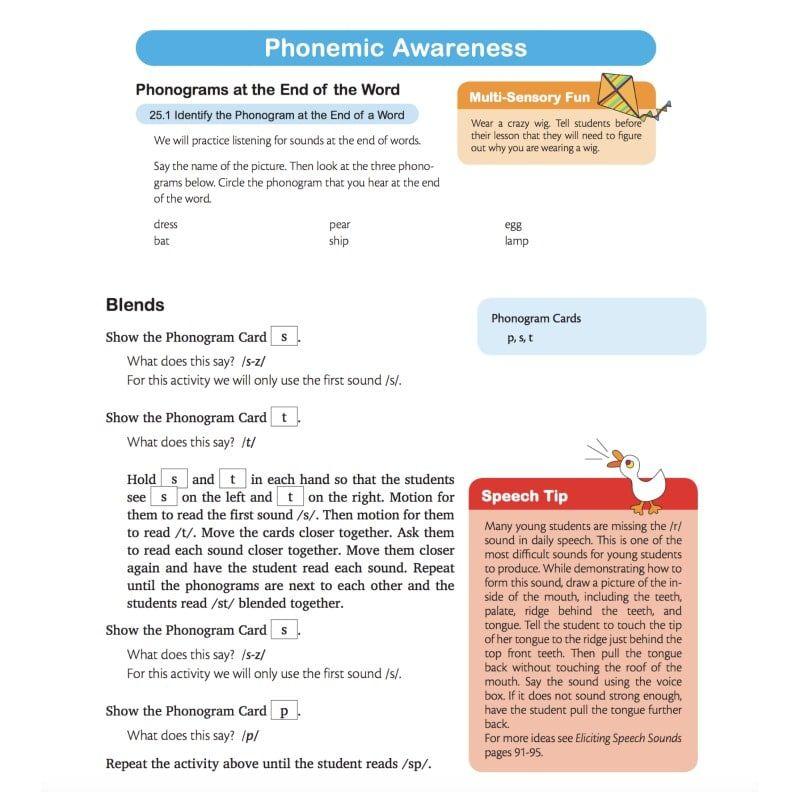
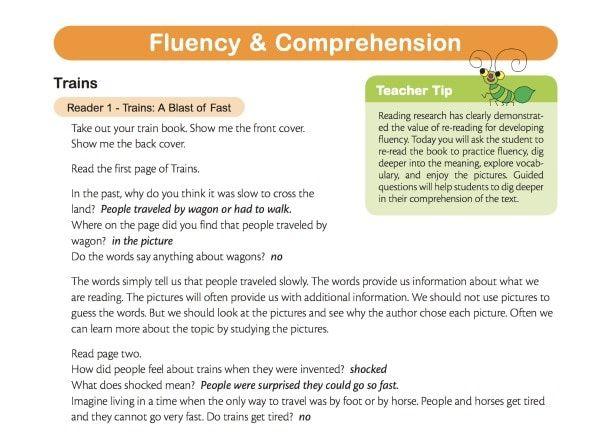
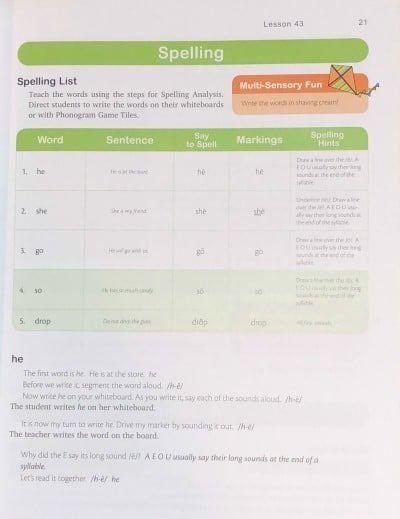
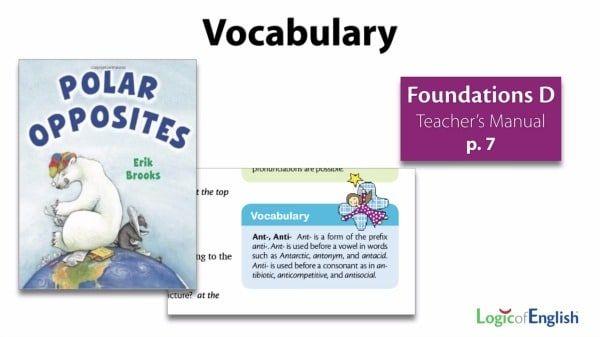
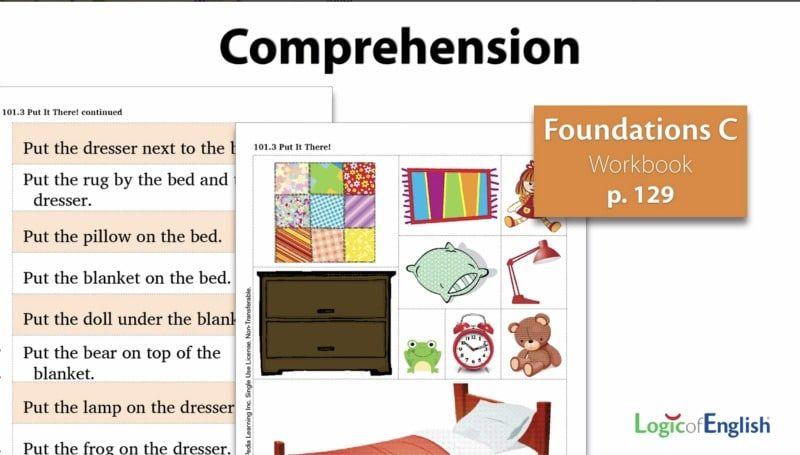
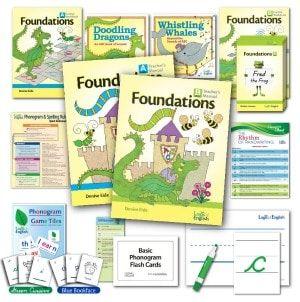




Thank you so much! I have been leaning toward buying this but unsure if it was the right thing for us. I have used AAR 1-4 with older dyslexic. It has GREAT readers, but just didn’t want to do it again with my 6 yr. old kindergartener. Which program do you prefer AAR or LOE? In your personal experience do you recommend cursive before manuscript? I have read the LOE explanation. I value your personal experience. I SUPER look forward to your review of the LOE Essentials program. Please include your ideas of pros and cons to the program. Again THANK YOU! I have had the privilege of hearing you at a Teach Them Diligently Conference. You are AWESOME!
If you’re starting over and you’d like a change, I think LOE is an excellent choice. I actually do both manuscript and cursive! I have them print their spelling words and any other writing they do as they are learning cursive since it takes a while to master that.:) That’s a great idea to add pros and cons. I’ll do that!
Hi Marianne,
First, I have to thank you for sharing your vast experience; I bought your Parent Education classes when my daughter was first diagnosed and you helped me understand and gain perspective on the journey ahead of us. I read your posts all the time, and have referred many friends to your site. I am truly grateful for you!
I did want to ask for your feedback re: LOE Foundations vs Essentials. My daughter is 9 but reading at a 1st-2nd grade level. She does not write in cursive; she doesn’t have strong word-attack skills. We have AAR materials (bought before I read your review), but now I am thinking we should use LOE instead. I used the “what level should I choose” tool on the LOE website, and they recommended Essentials, but I’m guessing that’s based on her age. Based on your experience with your own children, do you think we should start with Essentials or Foundations? If you don’t feel comfortable making that recommendation, I understand. Thanks!
I felt the same way about my 9-year old. The older version is very good. I teaches the same things but with less color. It is also good for 3 years. In Essentials, you can go through each lesson at 3 levels of difficulty so it is a very good investment.So you would go through it once and then start over with more difficult words and sentences. It will work but I think you can use Foundations too if you want to. It will cover the material at a slower pace though.
Thank you so much!!
How do I know which program to use? LOE or AAR? My son is 6 and struggling with learning to read. He did Abeka K phonics last year in his four day kindergarten and then we tried the Reading Lesson and he began to shows signs of frustration and stress. I have dysgraphia. Based on all of this, which is the best?
They are both good, Lindsay. LOE has more kinesthetic games and activities that may be good for a little boy. 🙂
I have a son who is 10. I have held him back a grade and still struggling. What do you recommend? Had been diagnosed with dyslexia and has a hard time reading, spelling, and writing. He excels in Math. Would LOE be best or All about reading?
They are both good programs. Pick one and work with it consistently. He’ll get there!
This is a silly question … but do your parent classes teach the difference on how to teach kids with mild or moderate or severe dyslexia . We are doing Barton level 1 with our 6 yr old who was diagnosed with severe dyslexia…. and every day it is tears. Logic of English looks so fun!
Hi Ang. Not a whole lot. LOE is a LOT more fun and kinesthetic than other programs!
We have a child with us now that is extremely far behind in reading and spelling through no fault of his own and though I do not believe he is dyslexic I do believe there is a level of disability there. Would this program be suitable for a delayed student
Yes! These programs work for any child but are especially good for kids who struggle.
Hi! My son is 9 years old with profound dyslexia and ADHD. He is in 3rd grade, but is reading three grade levels below. He has an IEP and has many goals and they use Wilson as his intervention, but with schools being closed until April 24th, I’m looking into purchasing a program to use with him at home. I do pay for OG tutoring, but that has been closed too. She wants to do online tutoring with him, but we’ve tried that before and it didn’t work well for him. Do you recommend the LOE Foundations or Essentials for him? Or should I just purchase a phonics workbook and use that with him during this weird time? Thank you so much!
Hi Lyndsay. I would choose LOE Foundations. It is fun and colorful. Either one would work but Foundations has more games and activities for younger kids! Good luck to you!!
My daughter just turned 7 and is in 1st grade. I don’t believe she is dyslexic but I’m wanting a comprehensive program to teach her reading. Which program would you recommend, LOE or AAR? Both look great and I’m having a hard time deciding. She knows most of the letters and their basic sounds. She can sound out some CVC words, although her blending needs more practice. She still can’t tell b, p, and d apart very well. Her school is using more of a whole language approach, which I’m not happy about. She is artistic, loves to draw, write, and do worksheets (matching games, filling in letter sounds, etc.). She was getting bored and discouraged when I tried to use the DISTAR “Teach your Child to read in 100 lessons” that I used with my older son. Any recommendations on programs that would be a good fit for her?
Hi Mary. Based on what you described, I think she will like Logic of English Foundations. It is colorful and has colorful, cute worksheets. You may want to start with Level A (the first level) just to make sure there are no gaps in her understanding.
Help! lol My 7 year old is an advanced reader, but struggles with writing. She has a difficult time sounding things out, makes the wrong sound blends, starts in the middle of words, and transposes letters when writing. She is dyslexic and has issues writing some letters and numbers backwards. Again, this is so odd because she reads like a champ ahead of her age level! I don’t know what program or level I should get for her because she does not have reading difficulty. Your advice welcomed! Thank you!
I would contact the LOE customer service. They will be able to give you the correct information. 🙂
Hi, this is exactly my daughter and I have no idea what to get for her. Did you find something that worked for your daughter? Thanks!
Is Logic of English ISMLIC approved?
I don’t know. You could contact their customer service and ask. 🙂
Helpful content.
Nice.
Hello! I have a daughter that will be 10 in August and was diagnosed recently with mild dyslexia and dysgraphia. She will be starting the 4th grade and is at a 3rd grade reading level. What program would you recommend for her? I have been searching for awhile on at home tutoring programs and came across your reading program comparison, which I have found to be very helpful! Thank you for your effort and sharing your knowledge! I also was thinking about enrolling in some of your parent online classes on learning more about what dyslexia is. With my daughter being as old as she is, which parent class would you recommend I start with? Thank you so much!
Hi! First thank you for all the resources compiled on your site. We are a few years into homeschooling, but brand new to dyslexia. My oldest daughter is 9 was just diagnosed last week. It turns out I also have dyslexia (which explains a lot in my life.) When I looked at the LOE and which program would be best, it pointed me towards Essentials, but that seems mostly based on her age. I know that she would go through the Foundations somewhat quickly, but I am also ok with that if it is the best fit. She is reading, but below grade level and struggling primarily with spelling, comprehension, and sequencing. Would you recommend one program over the other? Does the Essentials program spend much time on phonemic awareness? From what I understand at this point that is a big deficit for her. Also is the LOE program one that would lend itself well to working with two students at a time on the same content. I would love to be able to combine Language Arts for her and her younger sister, but if that isn’t a good idea I would rather know now. Thanks so much!
It has been a few years since I reviewed LOE Essentials. I would contact their customer support and ask. They are amazing!
Another good program for teaching phonemic awareness is Heggerty Fill the Gap.
My daughter is 11 yrs old, she attends public school. She gets help with her dyslexia, but I feel I could do more at home to help her. What would you suggest I start with? She reads slowly and sometimes I have to prompt her on long and short vowels, to know the sound to make the word. Also where she has a hard time reading, it also makes comprehending what she is reading hard. To go back and write an essay about it is also difficult.